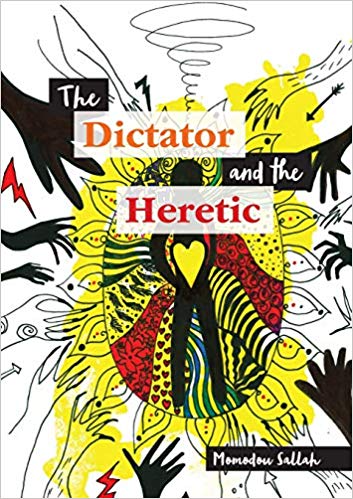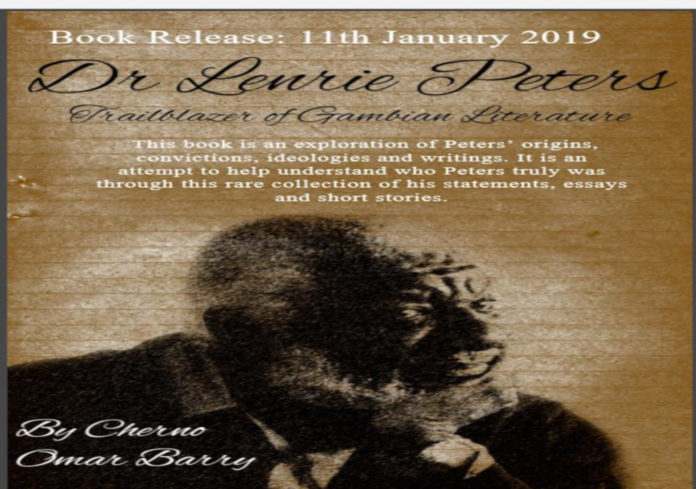Dr Lenrie Peters is without doubt the trailblazer of Gambian literature. His poetry has been studied in several schools across Africa yet many Gambian researchers have little or no knowledge of who Peters really was and where his conviction laid. This book is an exploration of Peters’ origins, convictions, ideologies and writings. It is an attempt to help understand who Peters truly was through this rare collection of his statements, essays and short stories. Peters represented the nagging paradox of the poet/writer whose major academic orientation was in the medical sciences. He also reflected the new emerging writer who placed more emphasis on the African woes and challenges rather than restricting himself to the nationalistic approach taken by the counterparts of his era. Through this collection of his works, we discover vividly who Peters truly was and how his orientation was different from the colonial and post-colonial African writers of his time. We will discover that Peters has taken so much from his father, especially the sharp criticism against the coloniser, but a much sharper attack against the post independent leaders who truly failed Africa. This first ever published book on Peters will illuminate him as the pathfinder ushering a new era of writers of his time.
Closures is a story built on and around multiple and multi-layered strands of the lives of six indomitable characters struggling with voids in their lives that they are all trying to fill. Sillah follows the fortunes of a Professor Emeretus, El. Bashiir Morris, a revert to Islam; a researcher Biram Ka; a women campaigner Maama Sireŋ Damfaa; an Air hostess Bôtôôr Margaret Jones; a visually impaired computer programmer Aliyu Badara Jallo; and an Imam, Alhaji Marafang Jawo.
Biram, Maama and Bôtôôr meet with a pilgrim from Mecca at Gatwick airport in London under extra-ordinary circumstances and it is these circumstances that have leads to their re-union in Kataminaland. Here, they seek and find the missing links of their pasts and as well as final closure.
The events of their journeys are about re-discovery; coming to terms with love, continuity and custom. In the story, Sillah with his characteristic insider/outsider perspectives, challenges firmly held paradigms about attitudes to self, gender, the youth, the mass Hijra, disability, patriotism, caste, ‘tribalism’, and the legacies of colonization. Sillah engages the reader in the resulting mind-set of these and illustrates that a people mired in material poverty, miseducation and the primacy of ethnic affiliations can easily slip back to those dark ages of her recent past-a past that she has lost!
In the words of Biram,
“In the clear daylight of the mind, we see undreamt off patterns in our lives and the lives of other people close to us. You and I, all of us, have been lunging towards this point for weeks, months maybe, even years and now we have come to an abrupt halt at the crossroads where we have found ourselves, found peace and comfort; discovered convergence and found closure alas.”
The story ends very happily but fires trenchant shots at the prevailing intrigues of the elite and their allies and proposes that Kataminaland herself, much like the characters in the story, needs to heal, find closure and move on with the times. 
Building on the author’s first poetry book, Innocent Questions, this collection of poems as implied in the title The Dictator and the Heretic, muses and ruminates on the way things are and the need to question the logic of convention. In a poignant, palpable and provocative way, the author pierces the sacred “logic of the system” and with his rhyme and lyrics, lays bare a range of themes: corruption, exploitation and dependency in Africa; surviving under dictatorship and oppression; post-colonialism and decolonisation; the beauty of Africa; love, heartbreak and hopelessness; and struggle, both internal and external. Using a range of powerful poetry techniques, the author refuses to surrender and instead promotes heresy against a heartless, soulless system of exploitation, unashamedly.
Readers will be introduced to critical counter orthodoxy ways of knowing and being; and new ways of perceiving and understanding their constructions of reality if they are able to find the treasures buried in this collection of poems.





















